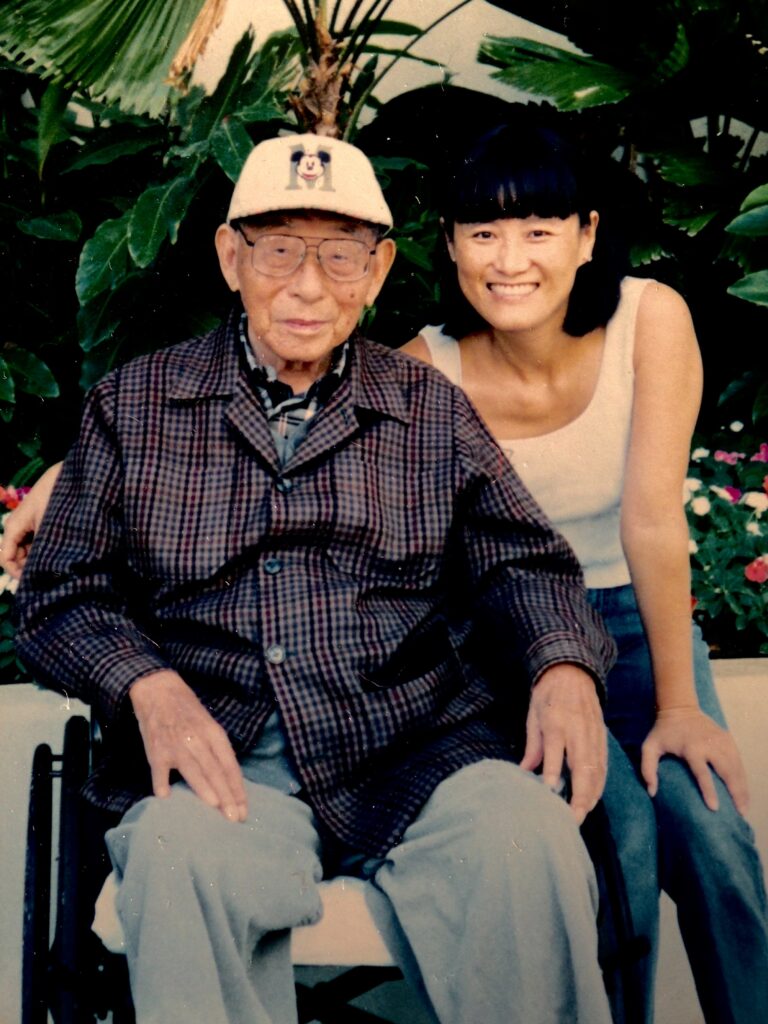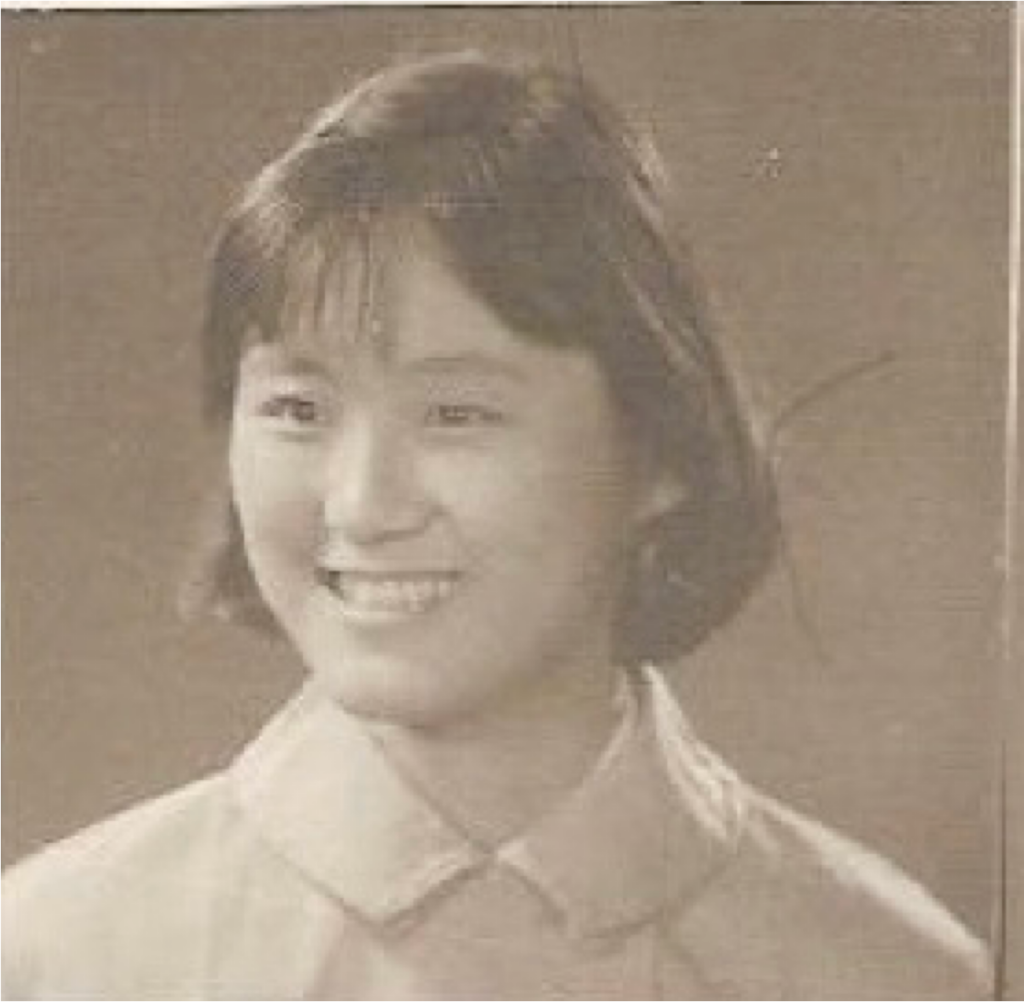
Q: Tell us your name and tell us where you are from.
A: Yeah, my name is Li Schoolland, but my Chinese name is Zhao Li. We put the family name first. So with my family name, Zhao Li is my full name. I was born in China in 1958 during the Great Leap Forward, and I lived there for twenty-six years. I left China in 1984.
Q: You lived there in a time where there was a lot of change happening in China. Tell me about some of your experiences growing up and where you started to see some of these negative aspects of the regime affect your life.
A: Oh, yes. As I mentioned, I was born during the Great Leap Forward. A campaign Chairman Mao started on because he wanted to be the world economic and political power. Ignorantly, he believed that if China had an annual production of steel and iron more significant than the United States or Great Britain, China would be number one in the world.
Just a side note. Xi Jinping right now had the same idea. As long as China had the most significant GDP increase, China is economic power, which is a very wrong calculation of economic growth. But anyway, that’s what Mao thought. So he instructed the whole country, entire China. Everybody stops doing whatever they were doing to produce iron and steel regardless if they knew how to or not.
They didn’t have iron ore, coal to burn, to make steel, and had no idea what to do. So they just made everybody bring metal products from their house like woks, hammers, even doorknobs to the school. And they burned all the trees they could find and then all the furniture, chairs, and tables to melt those metals.
The metal would get delivered to the city, and the city delivered to the provinces. So they add those little pieces and bits together to create a total of steel and iron production greater than the United States and Great Britain. So all the means of production and ready-made products were mostly destroyed, and all other economic activities were stopped.
After two years or almost three years of doing it, China experienced the worst famine from 1960 to 1963. The government created the headline saying this is a natural disaster. So until today, those three years in Chinese documents of history books, history books, or textbooks are still called three years of natural disaster. In reality, this was created by Mao Zedong. In 1957-58, Mao Zedong decreed that all the sparrows in the country were to be killed. Mao thought that sparrows ate too much grain and seemed rational for all sparrows to be killed.

So we needed to kill all these birds. The whole country started killing birds. And I remember as kids, we had something we can use to make noise. Kids go to the trees and rooftops to make noise when the birds came home at sunset. So much noise was made the birds couldn’t rest on the trees, and they keep flying until they were exhausted and dropped dead. And then we collect all the birds and bring them to the city or the work units. And we got rewarded with a little ribbon for how many birds we brought in.
And so we had three years of severe famine. So many people died of starvation, especially farmers, because it was a planned economy. Farmers didn’t get to keep what they planted. They were forced to plant things that were not suitable for the soil.
South of the Yangtze River, everybody plants rice. North of the river; everybody grows wheat.
Some soil doesn’t produce rice because of its lack of water, even though there were not south of the river. For example, in the village I lived in, the soil was so bad that it was only suitable for tobacco or peanuts.
Those were considered cash crops and were not allowed because there was no market, no exchange. So we had to plant rice, and there was no water. We had a low harvest yield.
One village fabricated its harvest yield to please Mao. Mao visited, and they decided this would be the standard for the entire country. The farmers could never meet this quota even if they gave 100 percent of their harvest. They ended up owing the government but would have to borrow to have food to eat. For the entire year, each family could only afford to eat rice once a year on Chinese new year.
There were no vegetables because no one was allowed to grow them. Some people grew ginger and chili peppers. We only got two liters per year per person. That’s how farmers lived. China was starving.
Anything edible was eaten. Tree bark. The ashes from burning incense in temples. Clay. People taught each other how to get tree bark off the tree. We had no axes or saws because they were all used for metal. My father was a medical doctor. He was called in for an emergency. The village chief was very bloated. He couldn’t move. My father asked what happened. They said he was so hungry that he couldn’t move.
He lay there and started to eat his pillow. After a couple of days, he ate the entire pillow and couldn’t digest it. That’s how sad things were. All of the grain was stored in government warehouses. Some kids went to these warehouses and stole from them. One kid took a plant he got from a government field. He was caught chewing on this plant. The village chief ordered his father to bury his 11-year-old son alive. The entire village watched.
At that time, burying people alive was popular. I learned as a kid that if you bury someone up to the neck, the weight of the soil will collapse your lungs. Later on, that father went crazy and killed himself. Many kids were punished in very inhumane ways. The entire country was starving for three years.
The government blamed the Soviet Union. They said we had a natural disaster, and the Soviets asked us to pay back what they loaned us ahead of schedule, which was a lie. China was giving foreign aid to Hungry and Chezslovkia to support their Communist little brothers. Meanwhile, all of China was starving. I read years later that the average caloric intake for Chinese people was lower than the average calorie intake for Auschwitz inmates during the Holocaust.
Q: During this period of extreme hardship, what was the general attitude of the people towards the government?
A: The People’s Republic of China was established in 1949. From 1950 until 1955, most of the effort was nationalized. All private enterprises and private property nationalized gradually, and then severely. In the end, anybody who resisted giving up their little mom and pop shop was executed. In 1956, Mao said: OK, China is on the right track. We want it to be better. So anybody who has suggestions, please tell us the suggestions and critiques.
People from the top central government to factories and research scholars and scientists came back from China after this. They were educated in the West and wanted to help this New China. For example, people would say we have better ideas for running the factory or have a better idea of how to do this kind of research and do that medical treatment.
They were very encouraged, thrilled. Mao felt threatened. And so he punished every single person who voiced opinions, recommendations, or comments, labeled them as rightist, and sent them to brutal labor camps. Everyone was shocked. These were the best and brightest Chinese minds who wanted to help China improve and modernize.
This led to lower-level government officials who wanted to please Mao to create a quota, so that one of every four people will be labeled as a rightist. They held endless meetings day and night. Sometimes the meeting lasted for 20 hours. People were so tired, and they started talking nonsense, and they all labeled them rightists immediately.
In my mom’s school, people knew better, and nobody talked. Finally, during a long meeting, this one guy got up to use the toilet. By the time he came back, he was labeled a rightist and sent to prison. Now, there’s a movie and some documentaries and books about those prison labor camps. They were sent to these remote places with nothing. People started to eat corpses. People ate their own shit. Still today, that site is heavily guarded because they won’t allow people to go and investigate what happened.
It was all due to this planned economy and the ignorance of the government. They deny it and brainwash people. Finally, in 1965 China got a little better. People had food to eat. In Shanghai, music came back, restaurants, theatres. Mao said this is wrong and is not politically correct. This marked the beginning of the great Cultural Revolution that lasted for ten years.
